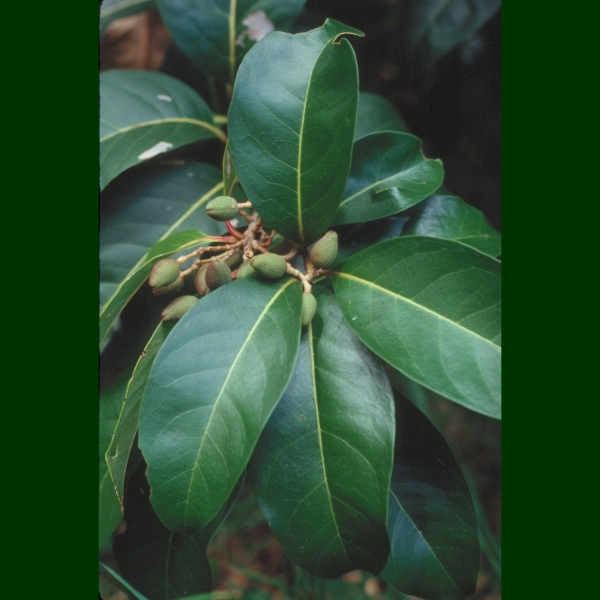 Hawaiian Name(s): olopua, pua, ulupua
Hawaiian Name(s): olopua, pua, ulupuaScientific Name: Nestegis sandwicensis
Vernacular Name: none
Family: Oleaceae
Status: endemic
Authority: (A.Gray) O.Deg., I.Deg. & L.A.S.Johnson
Description: Tree.
Habitat Found in dry to mesic forest between 30–1300 m on most main islands (Wagner et al. 1990:992).
Medicines:
Non Medicinal Uses: Durable, hard wood used for adze handles (Abbott 1992:88); as a rasp for fish hook manufacture and prized fuel because it burns hot even when green (Little and Skolmen 1989:278); house frames (Abbott 1992:67–68). Wood also as melomelo stick for fishing (Kamakau 1976:63) and as part of a tripping weapon (Krauss 1993:111). In the Ethnology Collection at Bishop Museum there is a post-contact example of the wood made into a bowl.
Specific gravity of wood: unknown
Famous Locations:
Mele:
`Ōlelo Noeau:
Dye Color and Parts:
Kino lau:
Location on Bishop Museum Kalihi Campus:
Propagation Information: Native Plants Hawaii.
Seed: Fruit length approximately 14.7 mm. Photograph: H.Lennstrom.

